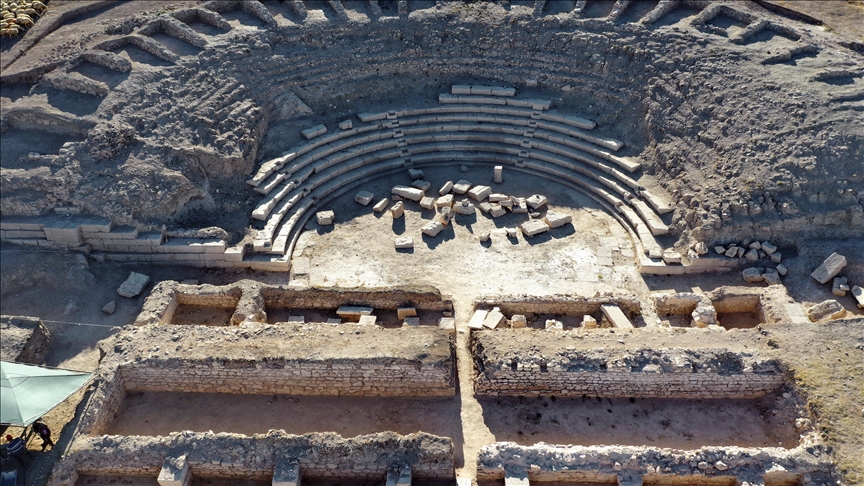 Unearthing ancient mysteries: Altar reveals insights into Savatra's Past in Turkiye's Konya
Unearthing ancient mysteries: Altar reveals insights into Savatra's Past in Turkiye's Konya
KONYA, Türkiye
An excavation in the heart of the ancient city of Savatra in central Türkiye unveiled a remarkable altar that promises to illuminate the long-forgotten aspects of life in this ancient metropolis.
Excavation in the ancient theater of the city located in the Karatay district of Konya under the guidance of Ilker Isik, head of Selcuk University’s Cultural Heritage Preservation and Restoration Department, has come to an end.
Sharing his insight and details of the findings with Anadolu, Isik said his team started excavations in May and found an altar while removing the blocks that had fallen on the steps. “We were very excited and happy to see this altar intact.”
Isik added that the altar suffered minimal damage from falling blocks due to its protective cover.
Ancient Greek inscription
Underlining that they came across an ancient Greek inscription on the altar translated by experts, he said: “It was determined that this altar was a donation to the theater by an organization or dynasty named 'Aurelia,' which was situated in the region. This revelation has afforded us a comprehensive understanding of the era's theater and also provided information about the cultural and sociological structures of that period.”
Isik pointed out that the front of the altar featured a depiction of a soldier, with a flag on one side, and a victory wreath on the other, symbolizing a triumphant success.
“This was a Roman military garrison area. We estimate that the altar belongs to the 2nd or 3rd century as it matches both the fonts and the findings obtained from the theater,” he added.
Isik explained that the excavation in the ancient theater, spanning nearly three years, has reached the final stage.
“After the excavation work comes to an end, we plan to proceed with the restoration work. We can now clearly see the damaged parts. We estimate that the restoration will be easy due to the small number of seating steps in the theater.”
*Writing by Seda Sevencan








